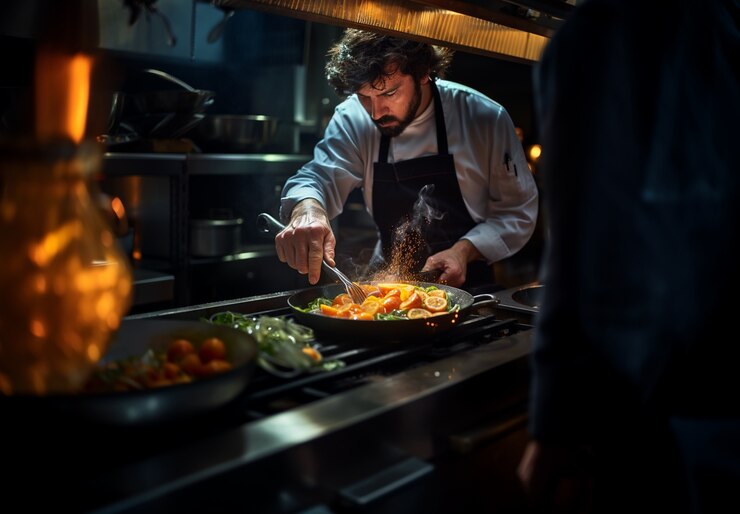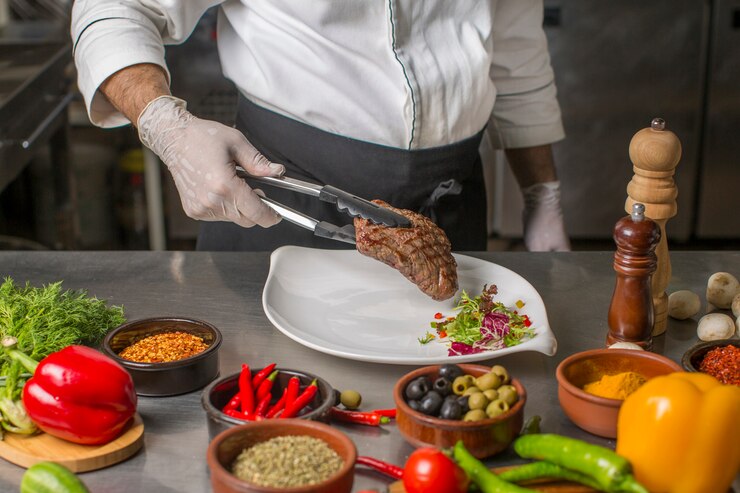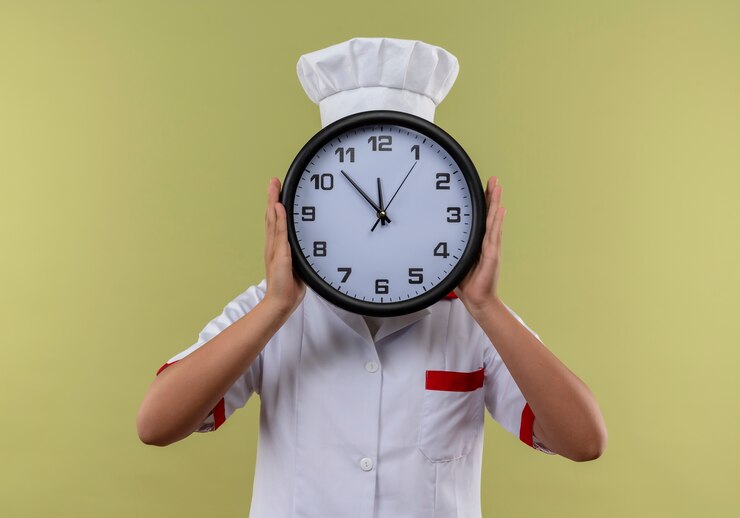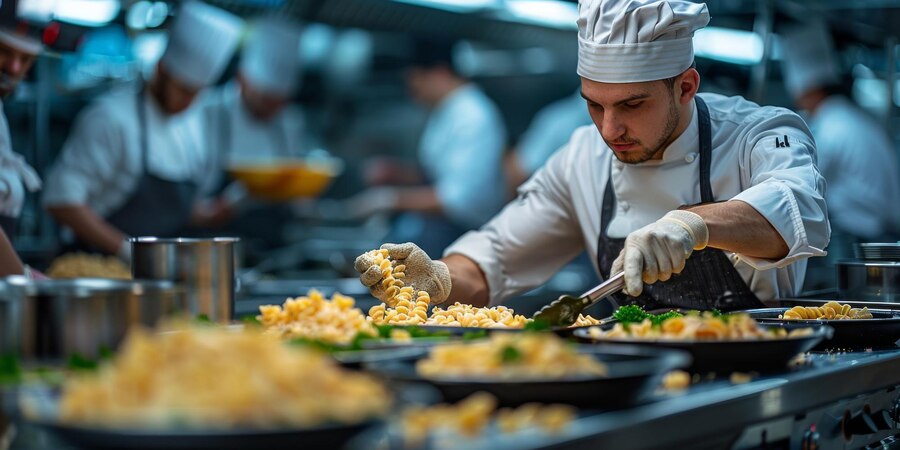Understanding the Role and Responsibilities of a Line Cook
In the bustling heart of any restaurant, you’ll find the unsung heroes of the culinary world – the line cooks. These skilled professionals are the backbone of the kitchen, responsible for executing each dish with precision and ensuring the overall dining experience is nothing short of exceptional.
But what exactly does it mean to be a line cook, and how do they contribute to the overall success of a restaurant? A line cook is a crucial member of the kitchen team, tasked with preparing, assembling, and presenting a wide array of menu items in a timely and efficient manner. They work in concert with the head chef, seamlessly executing recipes and maintaining the high standards that discerning diners have come to expect.
From mastering food preparation techniques to maintaining a clean and organized workstation, line cooks play a vital role in delivering the consistent, high-quality meals that keep guests coming back. Their ability to thrive under pressure, adapt to changing demands, and work cohesively with their kitchen colleagues is what separates the good from the great.

Essential Technical Skills for Line Cooks
At the core of a successful line cook’s repertoire are their technical skills – the foundational abilities that allow them to excel in the fast-paced, high-intensity environment of a commercial kitchen.
Proficiency in Food Preparation Techniques: Line cooks must be well-versed in a wide range of culinary techniques, from chopping, dicing, and slicing to sautéing, grilling, and baking. They need to be able to execute these skills with precision and speed, ensuring the consistent quality of each dish that leaves the pass.
Expertise in Kitchen Equipment and Tools: Successful line cooks are intimately familiar with the various tools and equipment found in a professional kitchen, from sharp knives and heavy-duty pots and pans to specialized cooking appliances. They understand how to properly use and maintain this equipment, maximizing efficiency and minimizing the risk of accidents.
Ability to Follow Recipes and Execute Dish Assembly: Line cooks must be able to follow recipes to the letter, ensuring that each dish is prepared according to the chef’s specifications. This requires a keen eye for detail, as well as the ability to assemble components in a logical and visually appealing manner.
Familiarity with Food Safety and Sanitation Protocols: Maintaining the highest standards of food safety and sanitation is a non-negotiable for line cooks. They must be well-versed in proper food handling procedures, temperature control, and cleaning and sanitizing techniques to protect both the kitchen staff and the dining guests.

Critical Soft Skills for Successful Line Cooks
While technical skills are undoubtedly essential, the most successful line cooks also possess a suite of critical soft skills that set them apart from the rest.
Adaptability and Multitasking
In the fast-paced, high-pressure environment of a commercial kitchen, line cooks must be able to adapt on the fly. They need to be skilled at juggling multiple tasks and duties simultaneously, from quickly preparing a special order to adjusting their workflow in response to unexpected changes in kitchen demand.

Attention to Detail
Attention to detail is a hallmark of exceptional line cooks. They understand that the little things – precise portion sizes, consistent plating, and flawless execution of recipes – can make all the difference in the dining experience. By maintaining a keen eye for detail, line cooks ensure that every dish that leaves the kitchen is a culinary masterpiece.

Communication and Teamwork
Effective communication and strong teamwork skills are essential for line cooks. They must be able to collaborate seamlessly with their fellow kitchen staff, clearly conveying information and anticipating the needs of the chefs and servers. Additionally, the ability to receive and provide constructive feedback is crucial for professional growth and continuous improvement.

Time Management and Efficiency
In the world of line cooking, time is of the essence. Successful line cooks possess exceptional time management skills, allowing them to prioritize tasks, optimize their workflow, and maintain a sense of urgency without sacrificing the quality of their work. By developing systems and strategies to streamline kitchen operations, they ensure that each dish is delivered to the guest in a timely and efficient manner.

Cultivating a Passion for Culinary Excellence
The most successful line cooks share a unwavering passion for culinary excellence, driven by a relentless desire to continuously learn and improve their craft. They embrace a mindset of lifelong learning, staying up-to-date with the latest industry trends, techniques, and best practices.
By seeking out mentorship opportunities, attending professional development workshops, and experimenting with new recipes and cooking methods, line cooks can elevate their skills and unlock their full potential. This dedication to growth and improvement not only benefits the individual, but also positively impacts the entire kitchen team and the dining experience as a whole.

Transitioning from Line Cook to Chef
For many aspiring culinary professionals, the line cook position serves as a crucial stepping stone on the path to becoming a successful chef. By honing their technical skills and cultivating the critical soft skills that define exceptional line cooks, individuals can position themselves for advancement and leadership roles within the kitchen hierarchy.
As line cooks continue to develop their expertise and demonstrate their value to the restaurant, they may have the opportunity to take on additional responsibilities, such as training and mentoring junior staff, overseeing kitchen operations, or even becoming a sous chef or head chef. By leveraging the experience and skills they’ve gained as a line cook, these individuals can seamlessly transition into more advanced culinary roles, ultimately shaping the future of the industry.
Conclusion: Unlock Your Potential as a Successful Line Cook
The path to becoming a successful line cook is paved with a unique blend of technical proficiency, critical soft skills, and an unwavering passion for culinary excellence. By mastering the essential abilities outlined in this guide – from food preparation and equipment expertise to adaptability and time management – you’ll position yourself for success in this dynamic and rewarding field.
Remember, the true mark of a great line cook lies not only in their ability to execute flawless dishes, but in their dedication to continuous growth, their commitment to teamwork, and their relentless pursuit of perfection. Embrace these qualities, and you’ll unlock a world of opportunity, both in the kitchen and beyond.
So, what are you waiting for? Dive in, hone your skills, and become the exceptional line cook that restaurants and diners alike will crave. The culinary world is your oyster, and the future is yours to shape.


